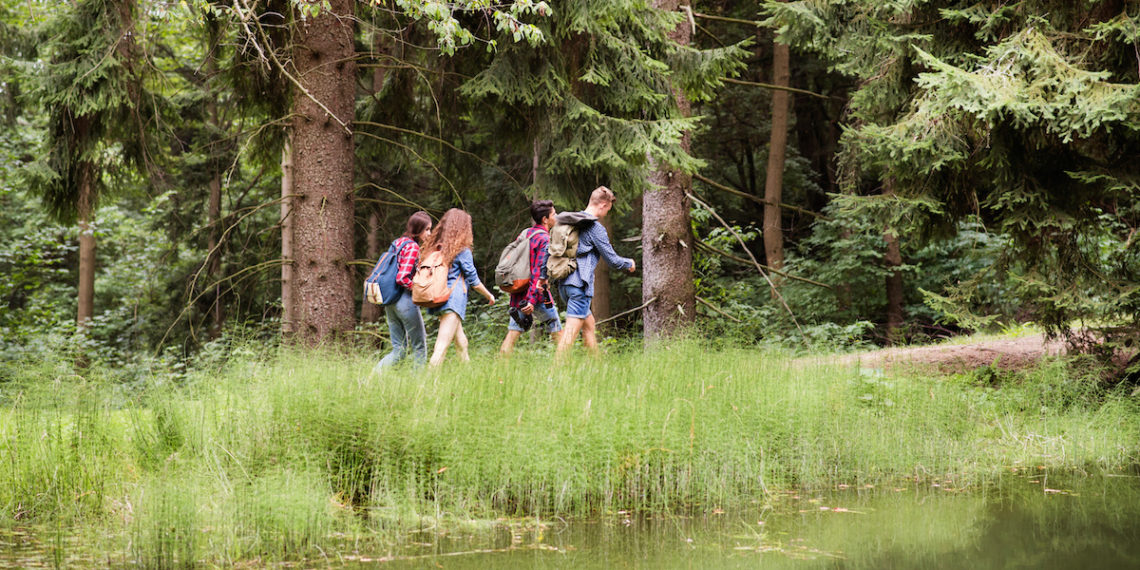
*The following is excerpted from an online article posted on PsychCentral.
Spending time in nature boosts children’s academic achievement and healthy development in a variety of ways, according to a new analysis published in the journal Frontiers in Psychology.
“It is time to take nature seriously as a resource for learning,” said lead author Dr. Ming Kuo, associate professor in the department of natural resources and environmental sciences at the University of Illinois. She added that the “trend of increasing indoor instruction in hopes of maximizing standardized test performance may be doing more harm than good.”
Kuo and co-authors from the University of Minnesota (U of M) found that nature boosts learning in the following distinct ways:
- rejuvenates attention;
- relieves stress;
- boosts self-discipline;
- increases physical activity and fitness;
- promotes student self-motivation, enjoyment and engagement.
“And all of these have been shown to improve learning,” says Kuo.
In addition, nature creates a calmer, quieter, and safer setting for learning; fosters warmer, more cooperative relations among students; and affords more creative, more exploratory forms of play.
While none of these findings are entirely new, the analysis represents the first time all of the lines of evidence have been pulled together.
Collectively, the study results make a much stronger case for the importance of time in nature. They also offer an explanation for something that has been puzzling scientists in the field — why even small doses of nature sometimes have surprisingly large effects.
The researchers say the key is seeing how these effects work together, in individual students and in classrooms.
“If something not only makes a student more attentive, but also less stressed and more interested, then you can see how it could have a large effect on their learning,” says Michael Barnes, doctoral student at the University of Minnesota and co-author on the study.
The effects of nature reach beyond academic benefits, according to the findings. Time in nature appears to foster personal skills and qualities important for future success, and may play a critical role in helping children grow up to be environmental stewards.
“Report after report, from independent observers as well as participants themselves, indicate beneficial shifts in perseverance, problem solving, critical thinking, leadership, teamwork and resilience,” said Dr. Catherine Jordan, associate professor at U of M and co-author on the study.
“All of these line up with skills we know are important for kids’ ability to thrive in the 21st century.”
Source: PsychCentral
https://psychcentral.com/news/2019/03/13/being-in-nature-can-boost-kids-development-learning/143644.html
Source: Home Word



